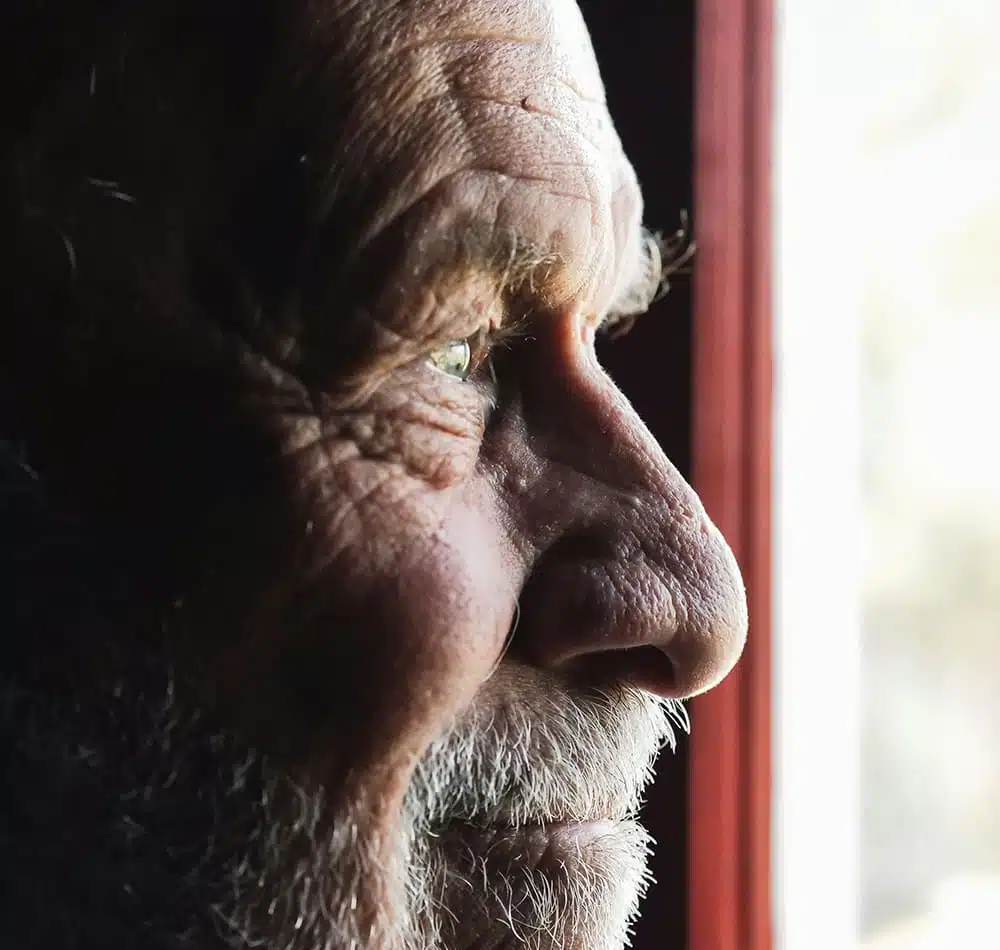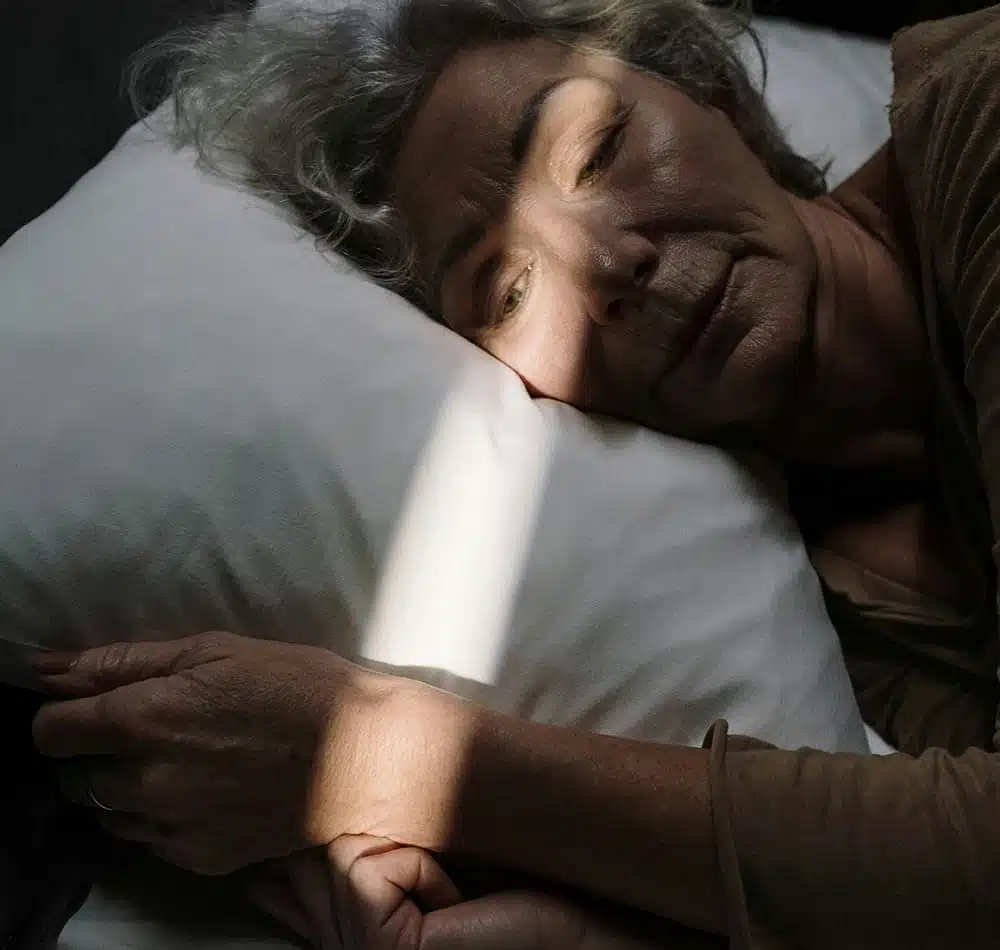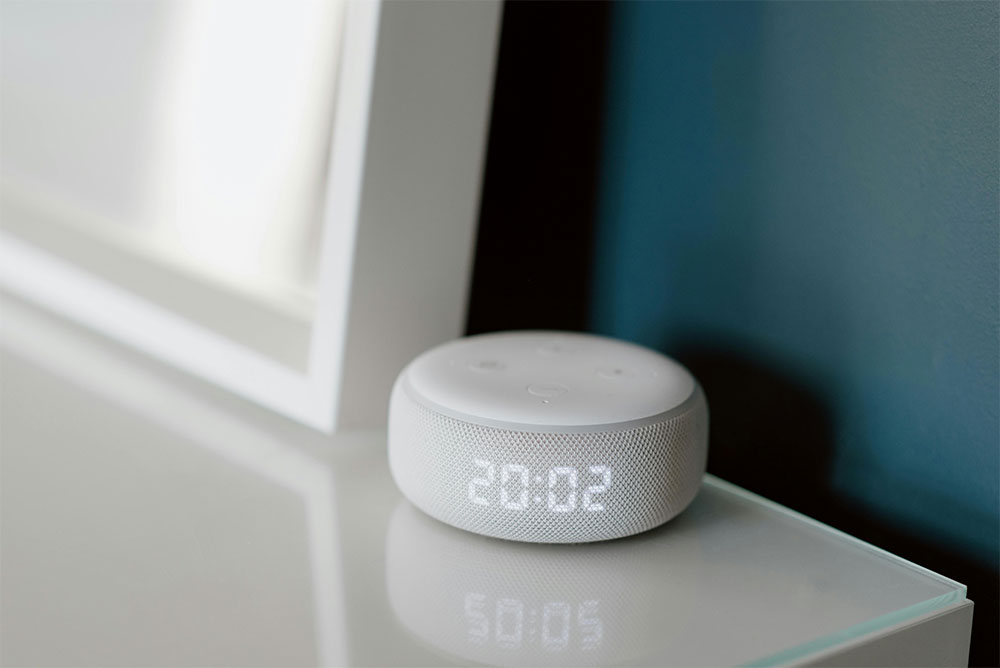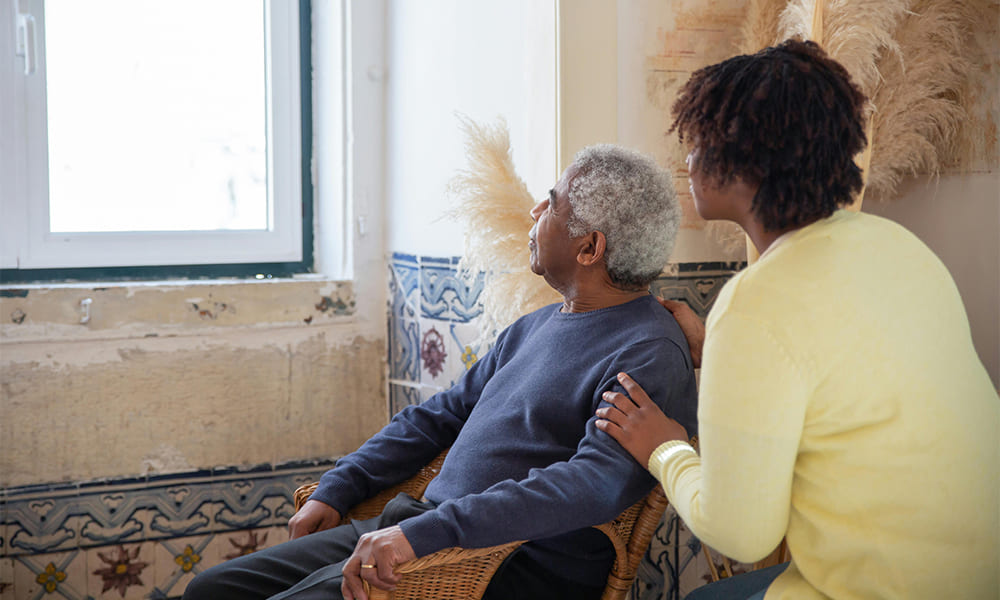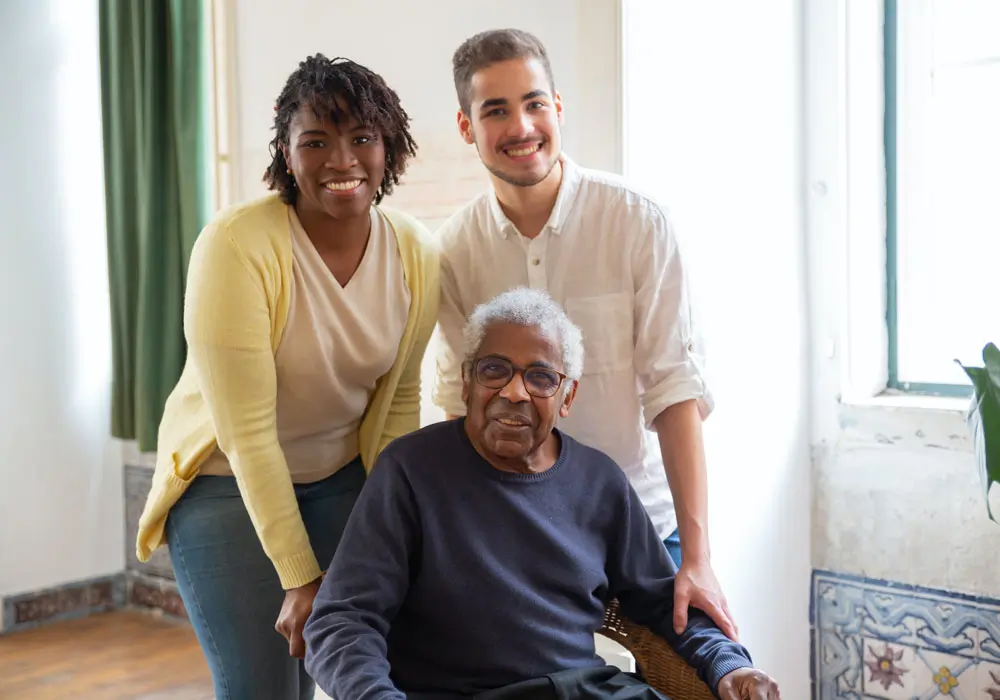Dementia anger is a common and challenging aspect of the disease, affecting both individuals with dementia and their caregivers. Understanding the triggers, stages, and effective management strategies is crucial for maintaining a safe and supportive environment. This comprehensive guide explores the causes of dementia anger, offers practical tips for handling outbursts, and provides resources for caregivers facing this difficult situation.

Christopher Ravn
Key Takeaways
1. Dementia anger can be triggered by various factors, including physical discomfort, confusion, and environmental stressors.
2. Effective communication techniques, such as speaking calmly and validating emotions, are crucial in dealing with a dementia patient's anger.
3. Creating a peaceful and familiar environment, maintaining a consistent routine, and engaging in enjoyable activities can help reduce anger and agitation in dementia patients.
Table of Contents
1. Dementia Anger
2. How To Deal With An Angry Dementia Parent
3. How To Deal With Alzheimer’s Anger?
4. What Are The Stages And Duration Of Anger And Aggression In Dementia?
5. What Are The Symptoms And Behaviors Of Anger And Aggression In Dementia?
6. How To Cope With Anger And Aggression In Dementia Caregiving?
7. How Do Emotional And Environmental Factors Influence Dementia Anger?
8. Frequently Asked Questions About Dementia Anger
Dementia Anger
- Physical discomfort such as pain, nausea, or dizziness
- Confusion due to mixed-up memories or sudden environmental changes
- Feelings of loss, loneliness, and sadness
- The environment becomes too loud, such as background noise or TV
- Sundowning or fatigue and thus define what stage of dementia is sundowning
Why Do Dementia Patients Get Angry?
As dementia patients start to experience cognitive decline, they may start to experience confusion, frustration, loss, and anger. This is because they are losing their ability to process information, remember, and even communicate clearly. This causes them to experience outbursts of anger.
Environmental factors play a huge role in dementia patients’ anger. For instance, loud noises, crowds, or too many people may seem overwhelming. Changes in daily routines such as meal times and sleep schedules, unfamiliar surroundings, and changes in routine may cause them to feel a loss of control, which triggers frustration and anger.
Pain and discomfort may contribute to a dementia patient’s anger because they are unable to manage the pain, resulting in frustration and anger.
What Triggers Aggression In Dementia?
- Being in unfamiliar surroundings, loud noises, and a large group of people may cause them to feel overwhelmed.
- Changes in environment, a new arrangement of furniture or a new face may disorient their sense of security.
- Misunderstandings may lead to frustration and anger
- Loss of control and fear of the unknown may cause them to feel anxious and triggered
How To Deal With An Angry Dementia Parent
- Physical pain and discomfort or medical issues that are unmanageable.
- Loss of control, which leads to frustration and anger
- Unable to remember people and events
- Loss of relationships, sense of self, and identity.
- Remain calm and composed even when faced with anger or aggression.
- Validate the parents’ emotions and show empathy
- Use simple, clear language, and do not confuse them.
- Understand the triggers that are causing an emotional outburst
- Reassure them that there is support and care
- Hold their hands or give them a gentle touch
- Prioritize self-care to avoid burnout
How To Handle Dementia Anger In Seniors
To handle dementia anger in seniors, it is important to speak calmly and listen to their concerns, show empathy even if they are angry, allow them to maintain control, and ensure a consistent routine, such as bathing and dressing at the same time every day.
Create a peaceful atmosphere by reducing noise levels, minimizing distractions, using soft lighting, and ensuring a comfortable temperature. Engage in enjoyable activities such as reading or watching TV, and avoid sudden changes or surprises.
It is important to provide familiarity because dementia affects a person’s ability to plan and complete activities. Therefore, the patient needs to be in a familiar environment and have routines that make them feel calm and composed.
Tips To Manage Dementia-Related Anger And Aggression
To manage anger and aggression for a loved one with dementia, it is important to remember that this is because of their condition. It is never to be taken as a personal attack. Here are some tips to manage dementia, anger, and aggression:
- Know their feeling and show empathy. Do not dismiss or ridicule their feelings, as this may aggravate the situation.
- Use distraction techniques or redirect their attention by changing the topic by asking them if they would like to watch a movie or go out for a walk.
- Use aromatherapy, music or other stimuli to calm the patient down
- Use non-verbal communication, such as a gentle touch, by holding their hands and nodding or smiling.
However, it is important to ask for professional help, such as a specialist nurse, who may provide guidance and support to manage any challenging behaviors. Thus, it is important to seek counseling or therapy to help cope with and manage the emotional demands of caregiving.

How To Deal With Alzheimer’s Anger?
- Irritability, restlessness, and physical aggression
- May exhibit fear, anxiety, and apprehension
- May experience depression as a result of losing independence
- May become disoriented and confused
- Sleep is disturbed, which leads to irritability and mood swings.
Join families who have found relief with EVY LIGHT®
Click below to see how EVY LIGHT® is helping others
What Are The Stages And Duration Of Anger And Aggression In Dementia?
- Stage 1: No cognitive decline
- Stage 2: Very mild cognitive decline
- Stage 3: Mild cognitive decline. Changes in mood and behavior.
- Stage 4: Moderate cognitive decline where you can see significant mood changes
- Stage 5: moderately severe cognitive decline and the patient shows significant changes in mood and behavior.
- Stage 6: Severe cognitive decline where the patient has issues communicating and has major mood changes
- Stage 7: Very severe cognitive decline where it is also difficult to communicate and you can see significant changes in mood and behavior.
How Long Does The Aggressive Stage Of Dementia Last?
The aggressive stage of dementia may vary in length and duration. This aggressive stage may last from weeks to years and, on average, from 2 to 10 years. This is because the patient may have unmet needs, a noisy and overcrowded environment, and suffer from confusion and frustration due to cognitive decline, pain or discomfort from pain, constipation, and infection.
What Are The Symptoms And Behaviors Of Anger And Aggression In Dementia?
Anger and aggressive behavior in dementia are seen during the middle or later stages of the disease. This may pose a challenge for caregivers and their loved ones when it comes to managing the patient. This is because the patient is triggered, and therefore it is important to understand their triggers, frequency, and severity.
Common signs of aggression are sudden outbursts of anger, physical violence, abusive language, kicking, scratching, damaging or destroying objects, damaging or destroying property, and threatening others with violent or sudden reactions to minor events.
This may vary according to the person’s personality, stage of dementia, events that may trigger the patient, communication issues, and environmental and health factors.
How Does Anger In Dementia Affect Loved Ones?
Anger over dementia affects loved ones, caregivers, and family members. Loved ones are affected by the anger and frustration when they are caring for the dementia patient. One may have to deal with a person with dementia, including frustration, anxiety, depression, and guilt. The same applies to a family member who is caring for a dementia patient, as they go through similar emotions as well.
Thus, it is important to seek support and respite care in order to manage the emotional impact of anger on the dementia patient. Respite care may help to provide a break from caregiving as it provides caregivers with time to recharge.

How To Cope With Anger And Aggression In Dementia Caregiving?
- Take short breaks to recharge and calm down
- Use clear and simple language to validate the feelings of your loved one
- Practice relaxation techniques like mindfulness and deep breathing. Focus on slow, deep breaths. Inhale through your nose and exhale through your mouth.
- Practice exercises such as yoga or Tai Chi to handle your stress or certain brain exercises for seniors.
- Understand that the abilities of your loved ones may decline
- Reach out to friends, family members, or support groups for guidance and emotional support.
When To Seek Help For Anger, Aggression, Or Violence In A Loved One With Dementia?
Signs that professional help is needed are when there is an increased frequency or aggression in behavior and the caregiver shows signs of feeling overwhelmed, exhausted, or experiencing emotional distress. Moreover, if the dementia patient is a threat to themselves and others, it is time to seek professional help.
A few places where one may find help and resources are the Alzheimer’s Association and the Dementia Navigator Program.
How Do Emotional And Environmental Factors Influence Dementia Anger?
Emotional and environmental factors play a huge role in dementia anger. This is because dementia patient may struggle to regulate their emotions, they fear the unknown or are anxious about losing control, and they go through an emotional tool that leads to grief and a loss of identity.
Moreover, environmental factors also play a huge role when there is too much noise or clutter, changes in the environment, or the dementia patient has discomfort such as pain, thirst or even hunger. It is important that the caregiver’s approach is positive and does not cause confusion.
Why Is My Elderly Mother Never Happy?
As a person ages, there may be various factors that affect the emotions and well-being of an elderly person. Thus, this comes off as anger which at times is challenging to manage. Let us look at how emotional distress and unmet needs trigger anger.
Emotional distress may arise due to the elderly patient feeling disconnected from family, friends, and social settings; feelings of chronic pain or illness; loss of loved ones’ health and independence, and fear of the future.
There is also the factor of unmet needs that may contribute to emotional distress and anger in the elderly. This includes unmet physical needs such as pain and discomfort, emotional needs such as validation, intimacy, or companionship, and psychological needs such as desire for control and purpose.
Hence, to identify and address the issues with your elderly mother’s anger, determine how to deal with dementia in a parent, pay attention to her behavior, listen actively to understand her fears, and seek help from a healthcare professional to rule out if there are other issues that are affecting her.
What Are Signs That Dementia Is Getting Worse?
- Forgetting recent events and appointments
- Struggling to dress, groom, and go to the washroom
- Becoming more irritable, agitated, and withdrawn
- Needs more assistance with daily activities
- Inability to recognize and respond to familiar people and places.
Frequently Asked Questions About Dementia Anger
When Does Dementia Anger Start?
- Stage 1: No cognitive decline
- Stage 2: Very mild cognitive decline
- Stage 3: Mild cognitive decline. Changes in mood and behavior.
- Stage 4: Moderate cognitive decline where you can see significant mood changes
- Stage 5: moderately severe cognitive decline and the patient shows significant changes in mood and behavior.
- Stage 6: Severe cognitive decline where the patient has issues communicating and has major mood changes
- Stage 7: Very severe cognitive decline where it is also difficult to communicate and you can see significant changes in mood and behavior.
How Can I Help A Loved One With Aggressive Dementia?
Creating a peaceful and familiar environment, maintaining a consistent routine, and engaging in enjoyable activities can help reduce anger and agitation in loved ones.















